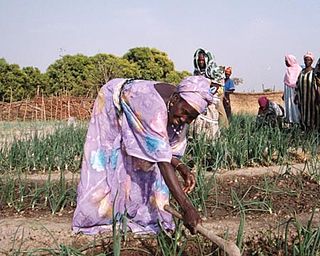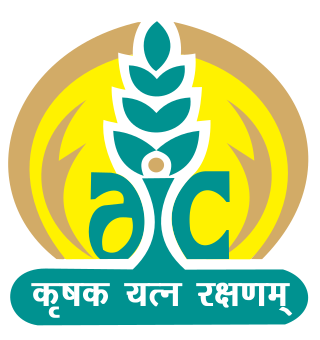
Fonterra Co-operative Group Limited is a New Zealand multinational publicly traded dairy co-operative owned by New Zealand farmers. The company is responsible for approximately 30% of the world's dairy exports and with revenue exceeding NZ $22 billion, making it New Zealand's largest company. It is the sixth-largest dairy company in the world as of 2022, as well as the largest in the Southern Hemisphere.

Murray John Finlay Luxton was a New Zealand National Party politician, serving as a Member of Parliament from 1987 to 2002. From 2008 to 2015, he was the Chairman of DairyNZ, the organisation that represents all New Zealand dairy farmers. He was co-chair of the Waikato River Authority, a Crown/iwi co-governance organisation established through Treaty of Waitangi settlement legislation to clean up the Waikato River.
The agricultural emissions research levy was a controversial tax proposal in New Zealand. It was first proposed in 2003 and would collect an estimated $8.4 million annually from livestock farmers, and which would have been used to fund research on the livestock industry's emissions of greenhouse gases, to further the nation's compliance with the Kyoto Protocol.

An agricultural cooperative, also known as a farmers' co-op, is a producer cooperative in which farmers pool their resources in certain areas of activities.
LIC is a three-letter abbreviation that may refer to:
The Danish cooperative movement was a cooperative movement with profound influence on the economic, organizational and industrial development of Denmark from the 1790s. The movement originally emerged in rural communities and was used widely in farming and the industrial development of the agricultural industry. It soon diversified into consumer organizations and in the 1900s, housing, retail and banking among other sectors.

Westland Milk Products is a dairy company based in Hokitika, New Zealand. It has been owned by Chinese dairy company Yili Group since 2019. It is the third largest dairy processor in New Zealand with a 3.4% market share.
Uganda's favorable soil conditions and climate have contributed to the country's agricultural success. Most areas of Uganda have usually received plenty of rain. In some years, small areas of the southeast and southwest have averaged more than 150 millimeters per month. In the north, there is often a short dry season in December and January. Temperatures vary only a few degrees above or below 20 °C but are moderated by differences in altitude.

Agriculture Insurance Company of India Limited (AIC) is an Indian public sector undertaking headquartered in New Delhi. It is a government-owned agricultural insurer under ownership of the Ministry of Finance, Government of India.

The South Korean National Agricultural Cooperative Federation was established in 1961 to enhance the social and economic status of its membership and to promote a balanced development of the national economy. Its role is divided into three areas: marketing and supply, banking and insurance, and extension services.

The Pastoral Greenhouse Gas Research Consortium (PGGRC) carries out research to find methods of reducing greenhouse gas emissions from livestock. The consortium, established in 2004, has a Memorandum of Understanding with the New Zealand Government. Almost half of the greenhouse gas emissions in New Zealand are due to agriculture and since the New Zealand government has signed and ratified the Kyoto Protocol methods are being sought to seek a reduction of these emissions.

In New Zealand, agriculture is the largest sector of the tradable economy. The country exported NZ$46.4 billion worth of agricultural products in the 12 months to June 2019, 79.6% of the country's total exported goods. The agriculture, forestry and fisheries sector directly contributed $12.653 billion of the national GDP in the 12 months to September 2020, and employed 143,000 people, 5.9% of New Zealand's workforce, as of the 2018 census.

Dairy farming in New Zealand began during the early days of colonisation by Europeans. The New Zealand dairy industry is based almost exclusively on cattle, with a population of 4.92 million milking cows in the 2019–20 season. The income from dairy farming is now a major part of the New Zealand economy, becoming an NZ$13.4 billion industry by 2017.
PGG Wrightson Limited is an agricultural supply business based in New Zealand. It was created in 2005 through the merger of Pyne Gould Guinness Ltd and Wrightson Limited and has its roots in a number of stock and station agencies dating back to 1861. It is one of the major suppliers to the agricultural sector in New Zealand providing products such as seeds, grains, livestock, irrigation, farm equipment, insurance and financing.
The cooperative movement in India plays a crucial role in the agricultural sector, banking and housing. The history of cooperatives in India is more than a hundred years old. Cooperatives developed very rapidly after Indian independence. According to an estimate, more than half a million cooperative societies are active in the country. Many cooperative societies, particularly in rural areas, increase political participation and are used as a stepping stone by aspiring politicians.
Professor Jennie Elizabeth Pryce is a quantitative geneticist based in Melbourne, Australia. Jennie is the DairyBio animal program leader in conjunction with her role as principal research scientist for Agriculture Victoria and Professor of animal genetics at La Trobe University.
First Milk is a dairy co-operative in Britain which manufactures cheese, specialist dairy ingredients and whey proteins for its customers, as well as providing traceable fresh milk to a range of dairy manufacturers and food processors. As a dairy co-operative, owned and run by farmers; the area covered by its milk pool runs from the Mull of Kintyre in Scotland down through England and Wales.
Newstead is a rural settlement on the outskirts of Hamilton, in the Waikato District and Waikato region of New Zealand's North Island.
Manufacturing in New Zealand contributed $23 billion (12%) of the country's gross domestic product and directly employed 241,000 people in 2017, while manufactured goods made up 52% of the country's exports by value. The food and beverage subsector alone contributed 32% of manufacturing's GDP and 71% of exports.








